Search
Using the filters to the left, click your selection, it will become bold and filter the results, click it again to remove that filter.
Improving supply chain resilience through preparedness Source: Security Challenges – Oct 20 Increasingly discussed prior to 2020, COVID-19 brought Australia’s vulnerability to trade disruption into stark reality. Until recently, there has been little from a Departmental (any Department) or overall Government side that has sought to understand our supply chain vulnerabilities and potential mitigation. The disruption of supply chains due to the pandemic has highlighted how these failures exacerbate security …
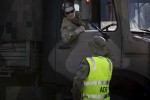
Eli Berman, Joseph H. Felter, and Jacob N. Shapiro (Princeton, NJ: Princeton University Press, 2018, 408 pages). The 2018 publication of Small Wars, Big Data: The Information Revolution in Modern Conflict coincided with the release of a body of resources on professional military education by the book’s publisher, Princeton University. This resource, the Empirical Studies of Conflict (ESOC) website, hosts databases that provide detailed conflict data for a dozen conflicts worldwide, in addition to a number …
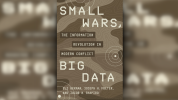
“Logrolling” in Antarctic governance: Limits and opportunities Source: Polar Record – Dec 20 In this article, McGee, Carpi and Jackson offer two simultaneous areas of consideration: addressing China’s increasing international influence and assertiveness regarding the Antarctica Treaty, and providing a case study in ‘log-rolling’ as a strategic approach. The former is of increasing importance to Australia given we have significant responsibilities and interests in Antarctica. Matters which undermine either …
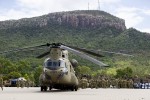
The first Army Quantum Technology Challenge (QTC 2021) saw teams of Australia’s world-leading quantum scientists and engineers show how quantum technologies can conceptually deliver Army unprecedented capabilities, including: Making the ground transparent: imaging what is hidden subterranean Resupplying troops in battle quickly, safely and efficiently: optimisation of large-scale resupply by squads of autonomous uncrewed ground vehicles. Denying the enemy secure communications: countermeasures quantum …
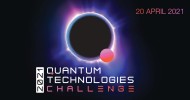
The first Army Quantum Technology Challenge (QTC 2021) was held at the Brisbane Convention and Exhibition Centre on 20 April 2021. The Challenge saw teams of Australia’s world-leading quantum scientists and engineers compete to show how quantum technologies can conceptually deliver Army unprecedented capabilities, including: Making the ground transparent: imaging what is hidden subterranean Resupplying troops in battle quickly, safely and efficiently: optimisation of large-scale resupply by squads of …
Global reset: COVID-19, systemic rivalry and the global order Source: Research in Globalization – Dec 20 One of the surprises from the COVID-19 pandemic in 2020 was the failure of strong Western nations to minimise or control the spread of the disease. This has complicated their standing within the world, a standing already under pressure from rapid economic and military growth in Asia. Dunford and Qi suggest one potential outcome of this, with a reset of the international order now focused on Beijing and …
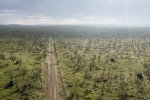
An analysis of counterterrorism measures taken by Indonesia since the 2002 Bali bombings Source: The Pacific Review – Jul 20 As much as a shock that the Bali bombings of 2002 were to Australians, the event and its long-term impact were even greater for the Indonesians. Coming at the start of the US ‘War on Terror’, there was significant pressure on Jakarta from Washington and Canberra to reform their domestic security posture and crack down on terrorist groups and supporters. Nearly 19 years on, Kathrin …
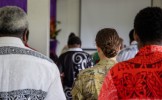
Introduction 2021 is a new year that arrives with antecedents firmly established and continuing to drive the strategic agenda. The AARC 2020 Strategic Assessments held, at their core, a view that the events of 2020 were accelerants of existing domestic and international challenges. The 2019–2020 National Bushfire crisis and the COVID-19 pandemic; tensions between US, China and their partners, and many Western nations experiencing social and political division, led the Prime Minister to describe the …
A Note from the Editors Welcome to the second issue of the Future Land Warfare Branch’s Spotlight Brief from the Australian Army Research Centre’s (AARC). This issue has a focus on the region. The Indo-Pacific Region is vitally important. It is not only where we live, but also the place where the Australian Army and its people work cooperatively and collaboratively with our many allies, partners and friends to advance peace and security for all. This will be on display at the forthcoming Chief of Army …
Editor's note: The Quantum Technology Roadmap has now been launched and can be viewed here . On 20th April 2021, Army will launch its Quantum Technology Roadmap. The launch will occur during the Quantum Technology Challenge 2021 (QTC 2021) at the Brisbane Convention and Exhibition Centre and will include presentations from Australia’s Chief Scientist, Dr Cathy Foley AO PSM, and the Chief Defence Scientist, Prof Tanya Munro. Quantum technologies have been identified as having substantial disruptive …



